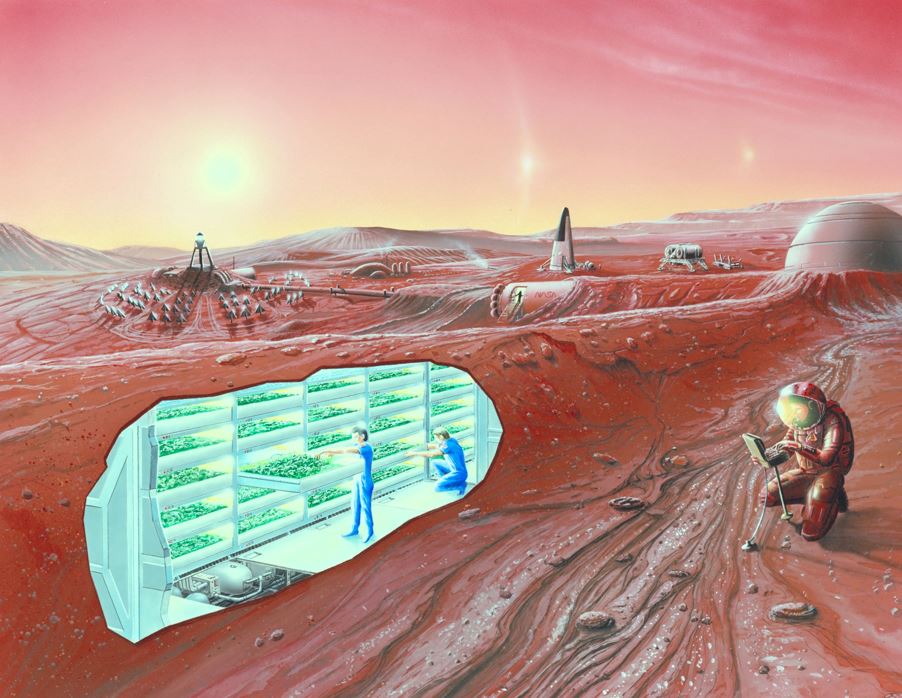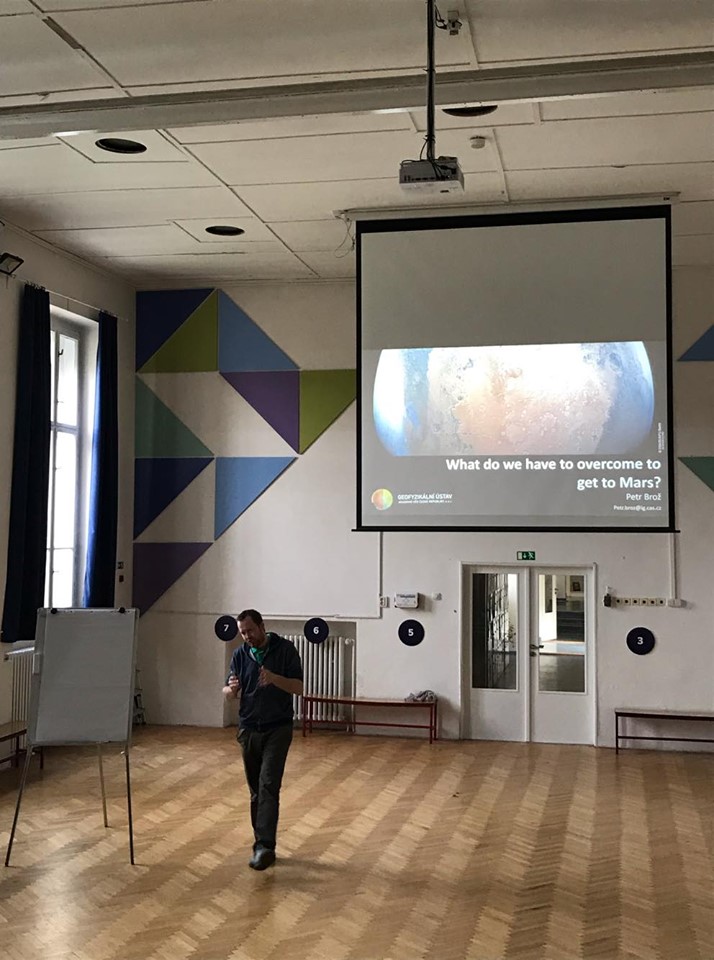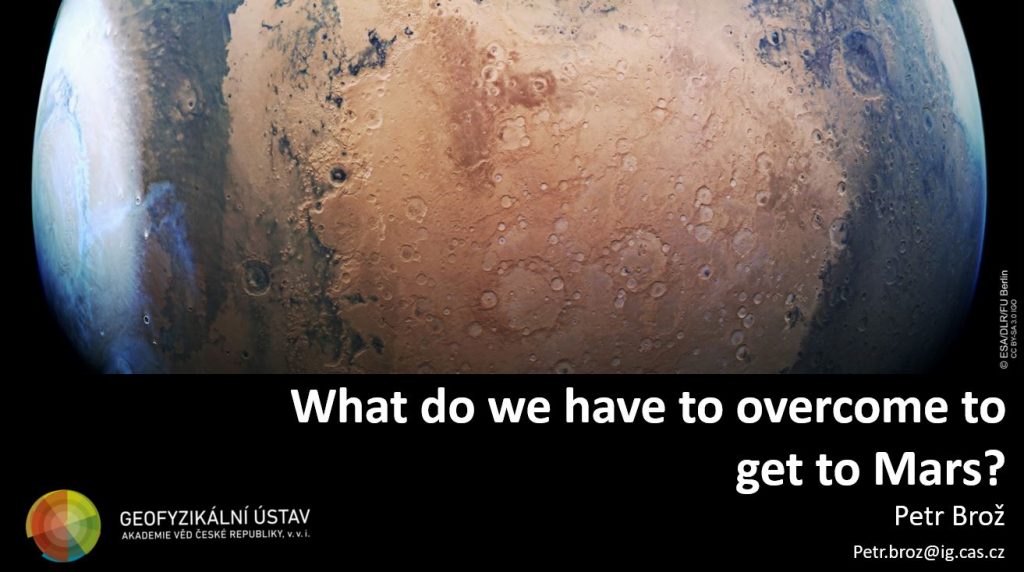“What do we have to overcome to get to Mars?” That was the main question of the recent lecture delivered to ECP students by Mgr. Petr Brož, Ph.D., a researcher at the Czech Academy of Sciences. He talked about the complexity of the mission to Mars project and also outlined the necessary technologies which we are still missing to be able to fulfill this ambitious dream.
Student voice
Our Year 4 student Victor Slimák said the following about the event: ”The lecture given by Petr Brož on Monday about the journey to Mars was very interesting. It was very interactive which kept the audience’s attention and also made people think. Dr. Brož talked about various challenges that we face before we can live on Mars. These challenges include: food provision, shielding from radiation and the time of the journey. First we discussed what we would need to be able to complete the journey. Dr. Brož talked about growing food on Mars or in space. Many students had questions about the science of growing plants using martian soil or bringing soil from the Earth to Mars.
The problem of radiation also came up, as the journey to Mars would take about 9 months. Lead can be used as shielding, however, it is very dense and thus it would weigh a lot. Another option is to use water which could later be used by the astronauts. Elon Musk’s company SpaceX also came up in the talk as they are revolutionising space travel and the recovery of their rockets. I found the whole lecture very fascinating and enjoyable and I would enjoy similar lectures in the future.”
About the lecturer
Petr Brož obtained his Ph.D. in 2015 at the Faculty of Science of the Charles University in Prague. He has been working as a researcher at the Department of Geodynamics of the Czech Academy of Sciences since 2010, where he focused on the volcanism across the Solar system. He specialises in volcanic activities on Mars; primarily on small volcanic objects created during short term volcanic activities caused by magma degassing and water/magma interactions on the surface of Mars.


